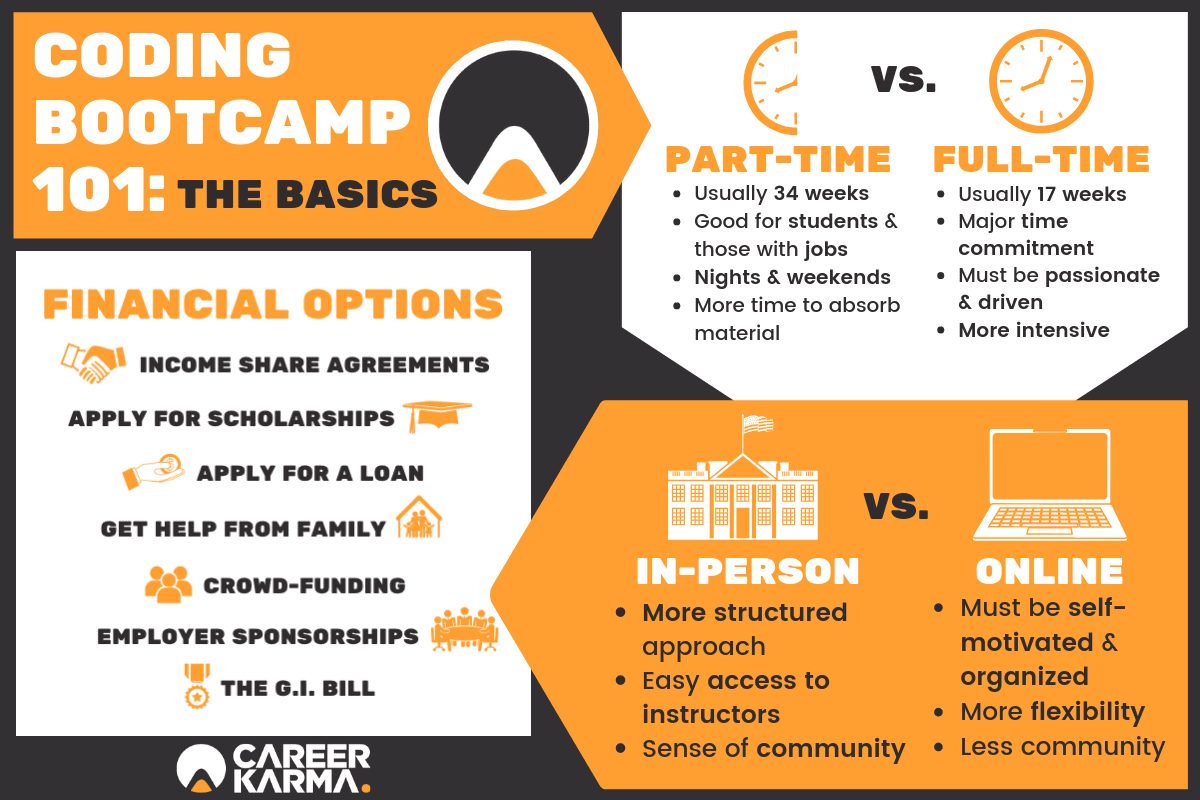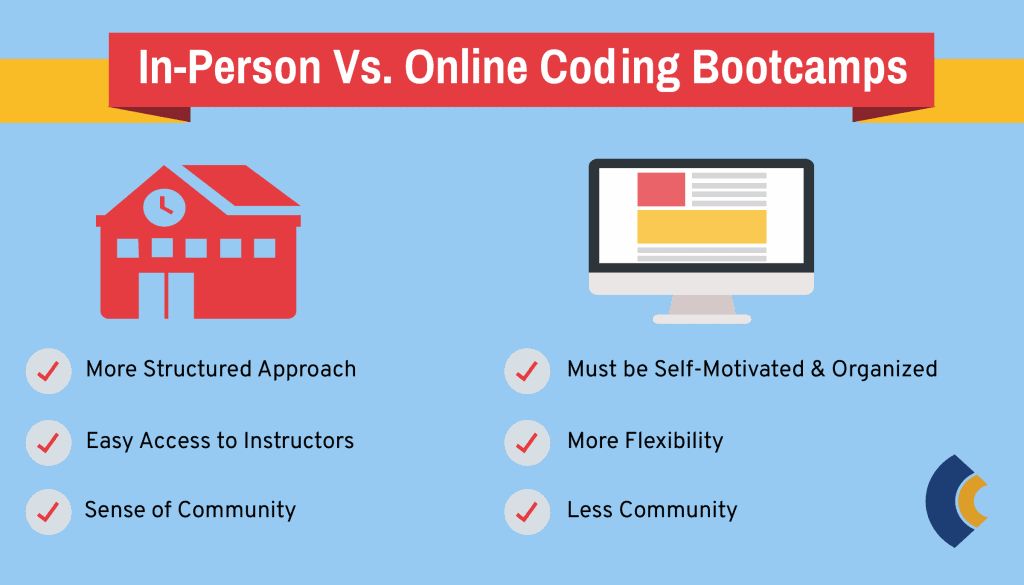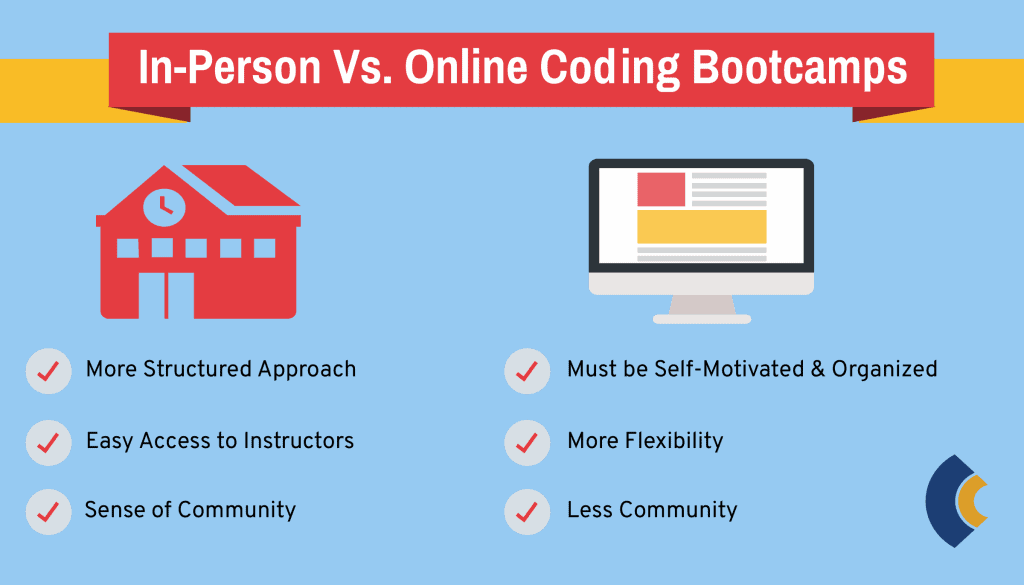What are Coding Bootcamps?
Coding bootcamps are intensive, short-term training programs designed to equip individuals with the programming skills needed to launch a career in software development or related tech fields. They offer a fast-paced, hands-on learning experience, focusing on practical application rather than extensive theoretical knowledge.
Coding bootcamps typically range in duration from a few weeks to several months, depending on the program’s intensity and curriculum. The condensed nature of these programs allows students to quickly acquire in-demand skills and enter the job market relatively quickly.
Bootcamp Program Durations and Formats
Bootcamps are offered in various formats to accommodate different learning styles and schedules. Full-time programs are the most intensive, often requiring a significant time commitment, typically lasting between 3 to 6 months. Part-time bootcamps, on the other hand, allow students to maintain other commitments while pursuing their education, usually extending the program duration to 6 to 12 months or longer. Furthermore, bootcamps are available both online and in-person, providing flexibility for geographically dispersed learners. Online bootcamps offer asynchronous and synchronous learning options, catering to various learning preferences. In-person bootcamps, however, offer the benefit of direct interaction with instructors and peers.
Programming Languages Taught in Coding Bootcamps
Many programming languages are taught, depending on the specific bootcamp and its focus area. The choice often reflects current industry demand and the career paths the bootcamp aims to prepare students for. Below is a table illustrating some common examples:
| Language | Popularity | Typical Applications | Bootcamp Frequency |
|---|---|---|---|
| Python | Very High | Data science, machine learning, web development, scripting | Very High |
| JavaScript | Very High | Web development (front-end and back-end), mobile app development | Very High |
| Java | High | Android app development, enterprise applications, big data | High |
| C# | High | Game development, web development, desktop applications | Moderate |
Curriculum and Structure of Coding Bootcamps

Coding bootcamps are intensive training programs designed to equip students with in-demand tech skills in a relatively short timeframe. Their curriculum and structure are carefully crafted to achieve this goal, focusing on practical application and rapid skill acquisition rather than extensive theoretical knowledge. The overall aim is to make graduates job-ready upon completion.
What is coding bootcamps – Bootcamp curricula vary depending on the specific program and its focus (e.g., web development, data science, cybersecurity). However, common elements include foundational programming concepts, specific technologies relevant to the chosen field, and a significant project-based learning component. The structure is generally fast-paced, involving daily classes, hands-on exercises, and collaborative projects. The intensity and condensed nature require a substantial time commitment from students.
Teaching Methodologies in Coding Bootcamps
Coding bootcamps utilize a variety of teaching methodologies to maximize learning effectiveness in their condensed timeframe. These often include a blend of instructor-led lectures, hands-on coding exercises, pair programming, group projects, and mentorship. Instructor-led lectures provide foundational knowledge and context, while hands-on activities allow for immediate application and skill development. Pair programming encourages collaboration and peer learning, while group projects simulate real-world team environments. Mentorship provides personalized guidance and support throughout the program. The emphasis is heavily on active learning and practical application, prioritizing skills development over extensive theoretical exploration.
Project-Based Learning in Coding Bootcamps
Project-based learning is a cornerstone of most coding bootcamp curricula. Students work on increasingly complex projects throughout the program, applying the skills they learn in a practical context. These projects often mirror real-world scenarios, allowing students to build a portfolio of demonstrable work that showcases their abilities to potential employers. This approach reinforces learning, builds problem-solving skills, and fosters creativity. Projects can range from simple individual assignments to large-scale collaborative projects involving teamwork, version control, and project management. For example, a web development bootcamp might culminate in a full-stack application built from scratch, including a functional front-end and a robust back-end.
Sample Weekly Schedule: Web Development Bootcamp
A typical week in a web development bootcamp would involve a structured schedule balancing theory and practical application. The specific technologies covered might vary depending on the bootcamp’s curriculum, but the structure remains similar, emphasizing a high volume of hands-on work.
- Monday: Introduction to HTML, CSS Fundamentals, Basic Website Structure. Hands-on exercises building simple HTML pages and styling them with CSS.
- Tuesday: Advanced CSS (flexbox, grid), Responsive Design principles. Building a responsive website layout using CSS.
- Wednesday: Introduction to JavaScript, DOM manipulation. Interactive exercises manipulating web page elements with JavaScript.
- Thursday: JavaScript advanced concepts (functions, objects, arrays). Building a small interactive web application using JavaScript.
- Friday: Introduction to a backend framework (e.g., Node.js, Python/Django, Ruby on Rails), API integration. Start a small group project integrating front-end and back-end technologies.
Cost and Financial Aid for Coding Bootcamps: What Is Coding Bootcamps

The cost of attending a coding bootcamp can be a significant factor in a prospective student’s decision-making process. Tuition fees vary considerably depending on factors such as program length, location, curriculum intensity, and the reputation of the institution. Understanding the financial landscape, including available funding options, is crucial for making an informed choice.
Bootcamp costs are influenced by several key variables. Generally, programs located in major metropolitan areas like New York City, San Francisco, or Boston tend to command higher tuition fees than those in smaller cities or rural areas. The intensity and duration of the program also play a role; immersive, full-time bootcamps are usually more expensive than part-time or online options. Finally, the specific technologies taught and the career services offered can impact the overall cost.
Average Bootcamp Costs and Geographic Variations
While precise figures are difficult to pin down due to the wide range of bootcamps and their pricing structures, a reasonable estimate for a full-time, in-person bootcamp is between $10,000 and $20,000. However, some programs can cost significantly more, reaching upwards of $30,000 or even more for specialized or highly prestigious programs. Bootcamps in high-cost-of-living areas will generally reflect those higher living expenses in their tuition. For example, a bootcamp in San Francisco might cost considerably more than a comparable program in a Midwest city.
Funding Options for Coding Bootcamps
Securing funding for a coding bootcamp is often a multi-faceted process. Fortunately, several avenues exist to help aspiring developers finance their education. These options can significantly reduce the upfront financial burden and allow more individuals to access these transformative learning experiences.
- Scholarships: Many bootcamps offer merit-based or need-based scholarships to reduce tuition costs. These scholarships often target specific demographics, such as women in tech, underrepresented minorities, or veterans. It’s crucial to actively search for these opportunities on the bootcamp’s website and through external scholarship databases.
- Income Share Agreements (ISAs): Some bootcamps offer ISAs as an alternative to traditional loans. With an ISA, students pay a percentage of their income after securing a job above a certain salary threshold, for a predetermined period. This approach shifts the risk to the bootcamp, as they only receive payment if the student is successfully employed.
- Loans: Federal student loans are typically not applicable to bootcamps, but private student loans are available from various lenders. It’s essential to carefully compare interest rates and repayment terms before committing to a loan. Understand the total cost of borrowing, including interest, to avoid unexpected financial burdens.
- Employer Sponsorship: Some companies sponsor their employees to attend coding bootcamps, recognizing the value of upskilling their workforce. If you are currently employed, exploring this option with your employer could be beneficial.
- Savings and Personal Funds: Many students utilize their personal savings or family contributions to finance their bootcamp education. This approach allows for greater control over the funding process, but it necessitates careful financial planning and budgeting.
Resources and Information on Financial Aid and Payment Plans
Numerous resources can assist prospective students in navigating the financial aspects of coding bootcamp enrollment. Bootcamps themselves often provide detailed information on their websites regarding tuition, payment plans, and available financial aid options. External websites and organizations dedicated to education finance can offer valuable guidance and comparison tools. It is recommended to thoroughly research all available options and compare different funding models to determine the most suitable approach for individual circumstances. Always carefully review the terms and conditions of any loan or payment plan before signing.
Career Outcomes and Job Placement

Coding bootcamps aim to equip students with the in-demand skills needed for immediate entry into the tech industry. Graduates often find themselves highly sought after due to their practical, hands-on training. However, the reality of job placement and career trajectory varies depending on factors like the bootcamp’s reputation, the student’s dedication, and prevailing market conditions.
The types of jobs secured by coding bootcamp graduates are diverse, reflecting the broad range of skills taught in these programs. Many find roles as front-end or back-end developers, full-stack developers, data analysts, or QA testers. Some graduates even leverage their new skills to transition into related fields, such as UX/UI design or DevOps. The specific roles depend heavily on the bootcamp’s specialization and the individual student’s focus during the program.
Employment Success Rates of Bootcamp Graduates
While precise figures vary depending on the bootcamp and reporting methodology, many reputable bootcamps boast high placement rates, often exceeding 70%. These figures frequently represent graduates finding employment within a specific timeframe after graduation, such as three or six months. It’s important to note that these statistics often reflect self-reported data from graduates and may not encompass every graduate’s experience. Factors influencing employment success include the student’s individual effort, networking abilities, and the overall economic climate. For example, a bootcamp specializing in data science might experience higher placement rates during periods of strong growth in the data analytics sector.
Salary Comparison: Bootcamp Graduates vs. Traditional CS Graduates, What is coding bootcamps
The average salary of a coding bootcamp graduate can be comparable to, or even exceed, that of entry-level positions held by graduates with traditional computer science degrees, particularly in certain specialized areas. This is because bootcamps often focus on immediately applicable skills, while traditional computer science programs may include more theoretical coursework. However, experienced computer science graduates generally earn more over their careers, due to their deeper understanding of computer science fundamentals. For example, a recent study might show that a bootcamp graduate specializing in web development earns an average of $70,000 annually, while an entry-level software engineer with a CS degree earns $75,000. However, with several years of experience, the CS graduate’s salary could significantly surpass that of the bootcamp graduate.
A Successful Career Path After a Coding Bootcamp: A Visual Illustration
Imagine a visual representation of a career path, starting with a vibrant, upward-sloping line representing the bootcamp experience. The line is initially steep, reflecting the intense learning curve. Along this line are icons representing key skills acquired: HTML, CSS, JavaScript, Python, and database management. As the line continues upward, it becomes less steep, symbolizing the transition into a professional career. The line branches into several paths, each representing a different career specialization: web development, data science, or mobile app development. Each branch is marked with different icons representing related technologies and skills gained through further learning and experience. The overall image is dynamic and positive, with bright colors and a sense of upward mobility. The further along each branch, the thicker the line, representing increased experience and higher salary. The final stage of each branch showcases senior roles, possibly with icons representing leadership, management, or entrepreneurship. The overall impression is one of continuous growth and opportunity.
Advantages and Disadvantages of Coding Bootcamps
Coding bootcamps offer a compelling alternative to traditional computer science degrees, presenting both significant advantages and notable drawbacks. Understanding these aspects is crucial for prospective students to make an informed decision about their career path. This section will explore the benefits and limitations of bootcamp education, facilitating a more comprehensive comparison with traditional degree programs.
Advantages of Coding Bootcamps
Coding bootcamps provide several key benefits that appeal to many aspiring developers. Their accelerated structure and focused curriculum allow students to quickly acquire in-demand skills, leading to faster entry into the tech workforce.
- Shorter Duration: Bootcamps typically last anywhere from a few weeks to a few months, significantly less time than a four-year university degree. This accelerated timeframe allows students to enter the job market much sooner.
- Intensive Learning: The immersive nature of bootcamps fosters rapid skill acquisition. The concentrated curriculum and hands-on projects provide a high volume of practical experience in a short period.
- Career Focus: Bootcamps are designed with specific career paths in mind, often focusing on highly sought-after skills in web development, data science, or cybersecurity. This targeted approach increases the likelihood of securing relevant employment after graduation.
- Practical Skills Emphasis: Bootcamps prioritize practical skills over extensive theoretical knowledge. Students engage in numerous projects, simulations, and real-world applications, developing proficiency in industry-standard tools and technologies.
- Networking Opportunities: Many bootcamps offer networking events and career services, connecting students with potential employers and industry professionals. This can be invaluable in securing job interviews and internships.
Disadvantages of Coding Bootcamps
While bootcamps offer numerous advantages, it’s important to acknowledge their limitations. The intensive nature of the program, along with the significant financial investment, necessitates careful consideration.
- High Cost: Bootcamp tuition can be substantial, often comparable to or exceeding a single year of university tuition. Securing financing and managing the cost should be a significant factor in the decision-making process.
- Intense Pace: The fast-paced nature of bootcamps can be overwhelming for some students. The demanding curriculum requires significant dedication, time commitment, and self-discipline.
- Limited Theoretical Knowledge: Bootcamps often prioritize practical skills over comprehensive theoretical understanding of computer science fundamentals. This might limit career advancement opportunities requiring a deeper theoretical foundation.
- Potential for Job Market Saturation: The increasing popularity of bootcamps has led to a larger pool of graduates competing for the same job openings. This increased competition can make securing employment more challenging.
- Lack of General Education: Unlike traditional degrees, bootcamps typically do not offer general education courses, limiting exposure to broader academic disciplines.
Comparison of Coding Bootcamps and Traditional Computer Science Degrees
A direct comparison highlights the key differences between these two educational pathways.
| Aspect | Coding Bootcamp | Traditional Degree | Notes |
|---|---|---|---|
| Duration | 3-6 months | 4 years | Significantly shorter timeframe for bootcamps. |
| Cost | Relatively high, but often less than a full degree | Potentially higher overall, but spread over four years | Consider financial aid options for both. |
| Curriculum | Highly focused, practical skills | Broader, includes theory and general education | Bootcamps prioritize immediate job readiness. |
| Learning Intensity | Intensive, fast-paced | More gradual, spread over semesters | Bootcamps require significant time commitment. |
| Career Outcomes | Faster entry into the job market, but potential for limited advancement opportunities without further education | Stronger foundation for long-term career growth, but slower entry into the workforce | Consider long-term career goals when choosing. |


Tim Redaksi